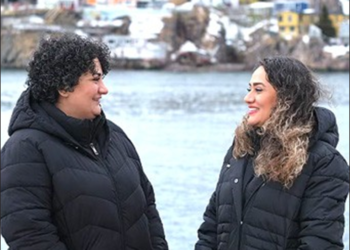Amir-Mokri was nominated September 7 as the first Iranian-American to hold a senior position in the Obama Administration after 2 1/2 years in office. (See Iran Times of September 16, page four.)
Amir-Mokri was chosen to be the assistant secretary of the Treasury in charge of the oversight and regulation of America’s financial institutions, one of the most important federal posts as the country tries to repair the economy from the 2008 financial collapse.
The post is what is called, in Washington jargon, PAS, for presidential appointment with Senate approval.
Amir-Mokri appeared before the Banking Committee last Thursday to seek its approval. Such appearances are normally dry and bureaucratic rites. But not Amir-Mokri’s.
He began in the standard way: “I am honored to appear before you today as the nominee for the position of assistant secretary of the Treasury for financial institutions.”
Equally standard, he then introduced his family members with him: “With me today are my parents, Mahvash and Ebrahim Amir-Mokri, and my sister Mina Amir-Mokri. I would not be here before you today without their love, support, and sacrifice.”
He then immediately departed from the standard script used in such cases, not speaking of his academic and professional record, but lauding his parents: “I would like to take a moment to give special recognition to my parents’ sacrifice. They were at or about my age today when, shortly after the Iranian revolution of 1979, they sent their two children, then aged 16 and 13, abroad.
“Physical separation between parents and children is difficult under any circumstance, but this difficulty was even more pronounced because of the tensions that bedeviled relations between the United States and Iran during the hostage crisis and its immediate aftermath.
“To give me and my sister the support we needed to go through school and young adulthood, my parents left behind everything that they had worked for in their careers—and more—and joined us in the United States to start a new life.
“And so we came to America in search of truths that the Declaration of Independence holds to be self-evident: that we are endowed by our Creator with the unalienable rights of life, liberty, and the pursuit of happiness. To our family, America has meant the realization of that promise.
“To all those around the world who wonder what America offers and what it represents, I ask that they consider my story. From the moment I arrived in 1981, I have known nothing but kindness, warmth, respect, and encouragement, whether it be in the idyllic town of Beaver Dam, Wisconsin, where I spent a year finishing high school or in the cosmopolitan metropolis of New York City, which is now my permanent home.
“In America, I have not been judged by the place of my birth, but by my dedication, loyalty, and hard work. The fact that a first generation immigrant from Iran finds himself sitting before this distinguished committee today proves that America, indeed, is a very special place.
“I am truly humbled that, in these extraordinary times, President Obama has nominated me to discharge the significant responsibilities of the assistant secretary of the Treasury…. I am extremely grateful to [Treasury] Secretary [Timothy] Geithner for his confidence and support, and for recommending me for the President’s consideration.
“In these challenging times, it is my privilege to answer the call to public service. As a first generation immigrant, I believe that I have a duty to give back to the country that has given so much to me. I also believe that we are all custodians of the idea of America, and we bear the solemn responsibility of safeguarding the idea of America so that it may continue to inspire people around the globe to seek a better life and to build a better world.”
Only then did Amir-Mokri turn to the specifics of the post he has been nominated to hold.
The job does not entail investigating banks and investment houses; that is done by regulatory agencies. What it involves is developing the regulatory policies and suggesting legislation to improve the oversight of US financial institutions so as to avert a repeat of the 2008 financial disaster.
In doing so, he will have to navigate the political minefield between liberals, who want tight oversight of those with vast influence over the financial system, and conservatives, who fear that complicated rules and reporting requirements will stifle economic innovation and throttle the economy.
Amir-Mokri did not tip his hand in that regard, however. His testimony instead slipped into the accepted professional jargon. “Congress enacted landmark legislation to remedy flaws in our financial system. It is critically important that financial regulators continue carefully to implement the reform agenda embodied by that legislation in a coordinated and measured fashion, consistent with the intent of Congress,” he said, now having shifted gears to bureaucratic generalities.
“We must continue to build the institutions designed for detecting and addressing systemic risk so that we do not experience a recurrence of the financial crisis of 2008. We must also work with regulators around the globe to ensure that financial regulatory regimes are consistent so that the playing field is not tilted to anyone’s unfair advantage.…
“If confirmed, I look forward to working closely with you to take the necessary steps to building and maintaining a financial system that can reliably sustain a growing, prosperous economy over the long term for all Americans.”
Amir-Mokri is not expected to face any serious opposition either in the Banking Committee or on the floor of the Senate. Such appointments must be approved only by the Senate; the House does not vote on them.


















